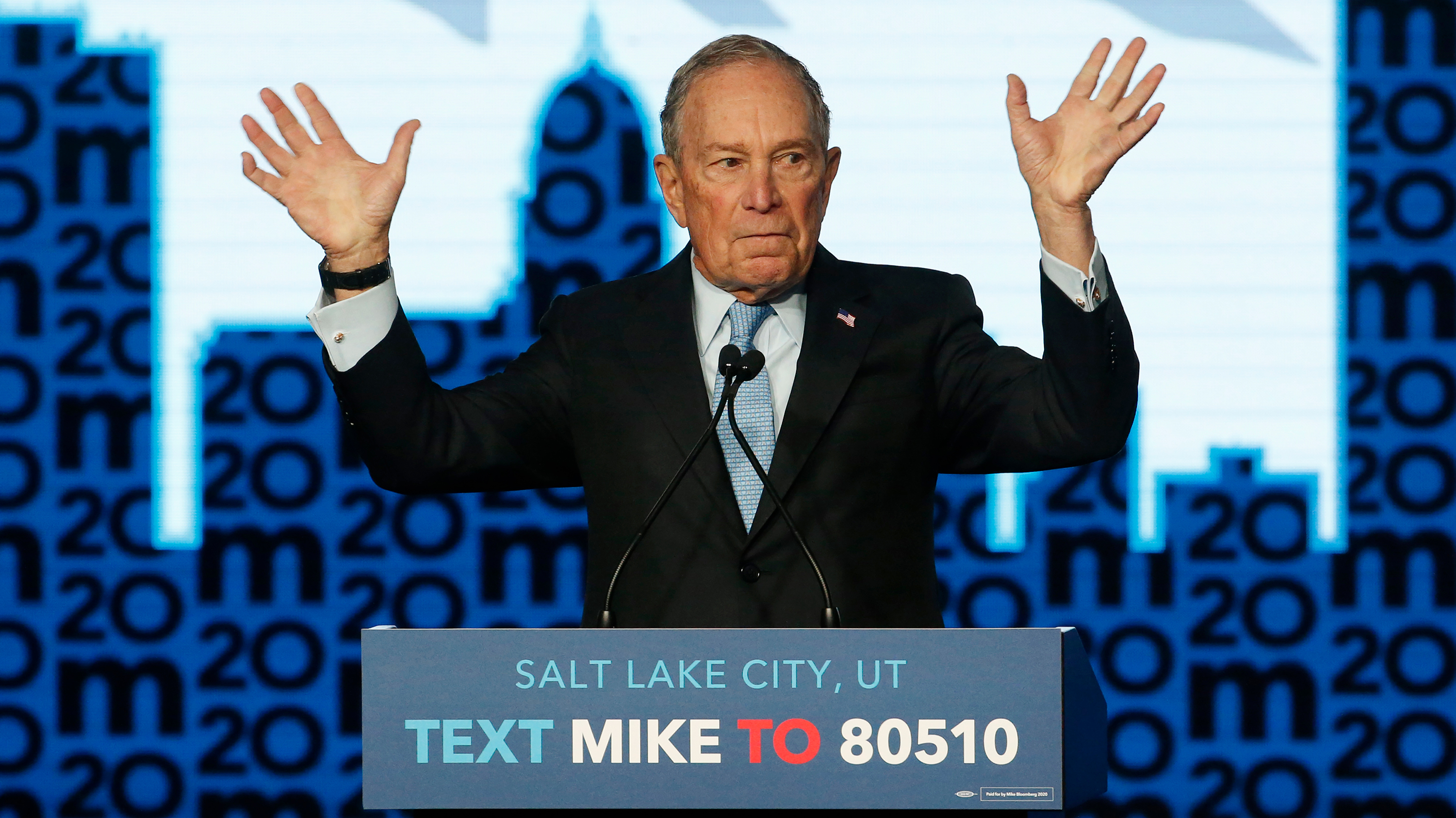Twitter has suspended 70 pro-Bloomberg accounts for “platform manipulation”

The news: Twitter has suspended 70 accounts that were posting content supporting US presidential hopeful Michael Bloomberg, saying the duplicate messages broke its policies against platform manipulation and spam. Some of the accounts face a permanent ban, while others will be recoverable once their owners prove they have control over them, Twitter told the LA Times. The policy, set up to tackle Russian-sponsored troll networks, bans coordinated activity “that attempts to artificially influence conversations through the use of multiple accounts” and tries to artificially boost engagement on tweets.
A controversial strategy: Bloomberg’s campaign has hired hundreds of people, each paid $2,500 a month, to recruit friends and family members to write posts supporting him. They’re given officially approved messages to push out on Facebook, Twitter, and Instagram. This suspension by Twitter shows that strategy can backfire—the payment by the campaign was a factor in its decision. However, given the sheer amount of money Bloomberg is spending ($460 million since he entered the race in November), these sorts of bans may have a limited impact.
A sign of things to come: It’s unlikely to be the last action taken by social-media companies in response to Bloomberg’s campaign, which is testing the limits of their rules. Although Facebook doesn’t see the campaign activity as “coordinated inauthentic behavior,” it does classify it as branded content, requiring disclosure from users if they have been paid.
Tricky silence: Facebook and Twitter have also diverged over how to treat a video posted by Bloomberg’s campaign last week, which had been edited to suggest a long silence from his opponents. Twitter has said it’s likely to label the video as “manipulated media,” while Facebook said it doesn’t break its rules because it’s not a deepfake.
Deep Dive
Policy
Is there anything more fascinating than a hidden world?
Some hidden worlds--whether in space, deep in the ocean, or in the form of waves or microbes--remain stubbornly unseen. Here's how technology is being used to reveal them.
A brief, weird history of brainwashing
L. Ron Hubbard, Operation Midnight Climax, and stochastic terrorism—the race for mind control changed America forever.
What Luddites can teach us about resisting an automated future
Opposing technology isn’t antithetical to progress.
Africa’s push to regulate AI starts now
AI is expanding across the continent and new policies are taking shape. But poor digital infrastructure and regulatory bottlenecks could slow adoption.
Stay connected
Get the latest updates from
MIT Technology Review
Discover special offers, top stories, upcoming events, and more.